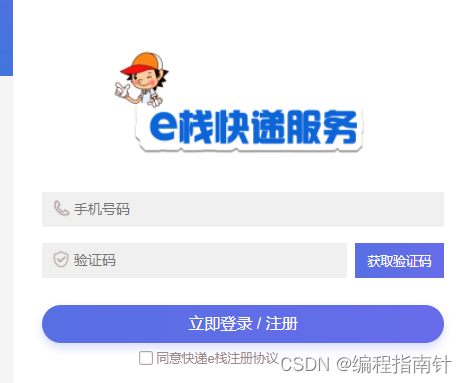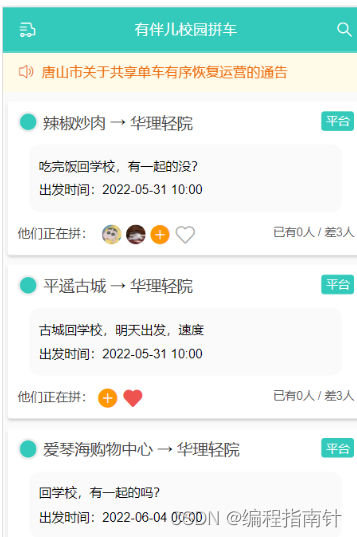作者简介:Java领域优质创作者、CSDN博客专家 、CSDN内容合伙人、掘金特邀作者、阿里云博客专家、51CTO特邀作者、多年架构师设计经验、多年校企合作经验,被多个学校常年聘为校外企业导师,指导学生毕业设计并参与学生毕业答辩指导,有较为丰富的相关经验。期待与各位高校教师、企业讲师以及同行交流合作
主要内容:Java项目、Python项目、前端项目、PHP、ASP.NET、人工智能与大数据、单片机开发、物联网设计与开发设计、简历模板、学习资料、面试题库、技术互助、就业指导等
业务范围:免费功能设计、开题报告、任务书、中期检查PPT、系统功能实现、代码编写、论文编写和辅导、论文降重、长期答辩答疑辅导、腾讯会议一对一专业讲解辅导答辩、模拟答辩演练、和理解代码逻辑思路等。
收藏点赞不迷路 关注作者有好处
文末获取源码
项目编号:BS-Python-050
一,环境介绍
语言环境:Python3.8
数据库:Mysql: mysql5.7
WEB框架:Django
开发工具:IDEA或PyCharm
二,项目简介
基于Python爬虫实现的招聘数据分析可视化大屏系统,是一种高效、直观的信息展示工具。该系统通过Python的爬虫技术(如Requests、BeautifulSoup等)从各大招聘网站抓取职位数据,包括职位名称、公司、薪资等关键信息。随后,使用pandas等库对数据进行清洗、整理和分析,提取出有价值的招聘趋势和统计数据。
在可视化方面,系统采用ECharts等前端可视化库,将分析结果以柱状图、饼图、热力图等形式在大屏上实时展示,如岗位地域分布、薪资水平对比、公司类型与规模分析等。这种可视化方式不仅让招聘数据一目了然,还便于企业调整招聘策略,求职者优化求职方向。
整个系统构建在Django等Python框架之上,具有良好的可扩展性和维护性,能够为用户提供实时、准确的招聘市场洞察。
三,系统展示






四,核心代码展示
# coding:utf-8
__author__ = "ila"
import logging, os, time
from django.http import JsonResponse
from django.apps import apps
from wsgiref.util import FileWrapper
from django.http import HttpResponse,HttpResponseRedirect
from django.shortcuts import redirect
from .config_model import config
from util.codes import *
from util import message as mes
from util.baidubce_api import BaiDuBce
from util.locate import geocoding
from dj2.settings import dbName as schemaName
from dj2.settings import hasHadoop
from django.db import connection
from hdfs.client import Client
def schemaName_cal(request, tableName, columnName):
'''
计算规则接口
'''
if request.method in ["POST", "GET"]:
msg = {"code": normal_code, 'data': []}
allModels = apps.get_app_config('main').get_models()
for m in allModels:
if m.__tablename__ == tableName:
data = m.getcomputedbycolumn(
m,
m,
columnName
)
print(data)
if data:
try:
sum='%.05f' % float(data.get("sum"))
except:
sum=0.00
try:
max='%.05f' % float(data.get("max"))
except:
max=0.00
try:
min='%.05f' % float(data.get("min"))
except:
min=0.00
try:
avg='%.05f' % float(data.get("avg"))
except:
avg=0.00
msg['data'] = {
"sum": sum,
"max": max,
"min": min,
"avg": avg,
}
break
return JsonResponse(msg)
def schemaName_file_upload(request):
'''
上传
'''
if request.method in ["POST", "GET"]:
msg = {"code": normal_code, "msg": "成功", "data": {}}
req_dict = request.session.get("req_dict")
type = req_dict.get("type")
file = request.FILES.get("file")
if file:
filename = file.name
filesuffix = filename.split(".")[-1]
file_name = "{}.{}".format(int(float(time.time()) * 1000), filesuffix)
if type != None and '_template' in type:
file_name="{}.{}".format(type,filesuffix)
filePath = os.path.join(os.getcwd(), "templates/front", file_name)
print("filePath===========>", filePath)
with open(filePath, 'wb+') as destination:
for chunk in file.chunks():
destination.write(chunk)
msg["file"] = file_name
# 判断是否需要保存为人脸识别基础照片
req_dict = request.session.get("req_dict")
type1 = req_dict.get("type", 0)
print("type1=======>",type1)
type1 = str(type1)
if type1 == '1':
params = {"name":"faceFile","value": file_name}
config.createbyreq(config, config, params)
if '是' in hasHadoop or 'spark' in hasHadoop:
try:
client = Client("http://127.0.0.1:50070/")
client.upload(hdfs_path=f'/{file_name}', local_path=filePath, chunk_size=2 << 19, overwrite=True)
except Exception as e:
print(f"hdfs upload error : {e}")
return JsonResponse(msg)
def schemaName_file_download(request):
'''
下载
'''
if request.method in ["POST", "GET"]:
req_dict = request.session.get("req_dict")
filename = req_dict.get("fileName")
filePath = os.path.join(os.getcwd(), "templates/front", filename)
print("filePath===========>", filePath)
if '是' in hasHadoop or 'spark' in hasHadoop:
try:
client = Client("http://127.0.0.1:50070/")
client.download(hdfs_path=f'/{filename}', local_path=filename, overwrite=True)
except Exception as e:
print(f"hdfs download error : {e}")
file = open(filePath, 'rb')
response = HttpResponse(file)
response['Content-Type'] = 'text/plain'
response['Content-Disposition'] = 'attachment; filename=%s' % os.path.basename(filePath)
response['Content-Length'] = os.path.getsize(filePath)
return response
def schemaName_follow_level(request, tableName, columnName, level, parent):
'''
'''
if request.method in ["POST", "GET"]:
msg = {"code": normal_code, 'data': []}
# 组合查询参数
params = {
"level": level,
"parent": parent
}
allModels = apps.get_app_config('main').get_models()
for m in allModels:
if m.__tablename__ == tableName:
data = m.getbyparams(
m,
m,
params
)
# 只需要此列的数据
for i in data:
msg['data'].append(i.get(columnName))
break
return JsonResponse(msg)
def schemaName_follow(request, tableName, columnName):
'''
根据option字段值获取某表的单行记录接口
组合columnName和columnValue成dict,传入查询方法
'''
if request.method in ["POST", "GET"]:
msg = {"code": normal_code, 'data': []}
# 组合查询参数
params = request.session.get('req_dict')
columnValue = params.get("columnValue")
params = {columnName: columnValue}
allModels = apps.get_app_config('main').get_models()
for m in allModels:
if m.__tablename__ == tableName:
data = m.getbyparams(
m,
m,
params
)
if len(data)>0:
msg['data'] = data[0]
break
return JsonResponse(msg)
def schemaName_location(request):
'''
定位
:return:
'''
if request.method in ["POST", "GET"]:
msg = {"code": normal_code, "msg": mes.normal_code, "address": ''}
req_dict = request.session.get('req_dict')
datas = config.getbyparams(config, config, {"name": "baidu_ditu_ak"})
if len(datas) > 0:
baidu_ditu_ak = datas[0].get("baidu_ditu_ak")
else:
baidu_ditu_ak = 'QvMZVORsL7sGzPyTf5ZhawntyjiWYCif'
lat = req_dict.get("lat", 24.2943350100)
lon = req_dict.get("lng", 116.1287866600)
msg['address'] = geocoding(baidu_ditu_ak, lat, lon)
return JsonResponse(msg)
def schemaName_matchface(request):
'''
baidubce百度人脸识别
'''
if request.method in ["POST", "GET"]:
try:
msg = {"code": normal_code}
req_dict = request.session.get("req_dict")
face1 = req_dict.get("face1")
file_path1 = os.path.join(os.getcwd(),"templates/front",face1)
face2 = req_dict.get("face2")
file_path2 = os.path.join(os.getcwd(), "templates/front", face2)
data = config.getbyparams(config, config, {"name": "APIKey"})
client_id = data[0].get("value")
data = config.getbyparams(config, config, {"name": "SecretKey"})
client_secret = data[0].get("value")
bdb = BaiDuBce()
score = bdb.bd_check2pic(client_id, client_secret, file_path1, file_path2)
msg['score'] = score
return JsonResponse(msg)
except:
return JsonResponse({"code": 500, "msg": "匹配失败", "score": 0})
def schemaName_option(request, tableName, columnName):
'''
获取某表的某个字段列表接口
:param request:
:param tableName:
:param columnName:
:return:
'''
if request.method in ["POST", "GET"]:
msg = {"code": normal_code, 'data': []}
new_params = {}
params = request.session.get("req_dict")
if params.get('conditionColumn') != None and params.get('conditionValue') != None:
new_params[params['conditionColumn']] = params['conditionValue']
allModels = apps.get_app_config('main').get_models()
for m in allModels:
if m.__tablename__ == tableName:
data = m.getbyColumn(
m,
m,
columnName,
new_params
)
msg['data'] = data
break
return JsonResponse(msg)
def schemaName_remind_tablename_columnname_type(request, tableName, columnName, type)->int:
'''
前台提醒接口(通用接口,不需要登陆)
'''
if request.method in ["POST", "GET"]:
msg = {"code": normal_code, 'data': []}
# 组合查询参数
params = request.session.get("req_dict")
remindstart = int(params.get('remindstart')) if params.get('remindstart') != None else None
remindend = int(params.get('remindend')) if params.get('remindend') != None else None
if int(type) == 1: # 数字
if remindstart == None and remindend != None:
params['remindstart'] = 0
elif remindstart != None and remindend == None:
params['remindend'] = 999999
elif remindstart == None and remindend == None:
params['remindstart'] = 0
params['remindend'] = 999999
elif int(type) == 2: # 日期
current_time = int(time.time())
if remindstart == None and remindend != None:
starttime = current_time - 60 * 60 * 24 * 365 * 2
params['remindstart'] = time.strftime("%Y-%m-%d", time.localtime(starttime))
endtime = current_time + 60 * 60 * 24 * remindend
params['remindend'] = time.strftime("%Y-%m-%d", time.localtime(endtime))
elif remindstart != None and remindend == None:
starttime = current_time - 60 * 60 * 24 * remindstart
params['remindstart'] = time.strftime("%Y-%m-%d", time.localtime(starttime))
endtime = current_time + 60 * 60 * 24 * 365 * 2
params['remindend'] = time.strftime("%Y-%m-%d", time.localtime(endtime))
elif remindstart == None and remindend == None:
starttime = current_time - 60 * 60 * 24 * 365 * 2
params['remindstart'] = time.strftime("%Y-%m-%d", time.localtime(starttime))
endtime = current_time + 60 * 60 * 24 * 365 * 2
params['remindend'] = time.strftime("%Y-%m-%d", time.localtime(endtime))
allModels = apps.get_app_config('main').get_models()
for m in allModels:
if m.__tablename__ == tableName:
data = m.getbetweenparams(
m,
m,
columnName,
params
)
msg['count'] = len(data)
break
return JsonResponse(msg)
def schemaName_tablename_remind_columnname_type(request, tableName, columnName, type):
'''
后台提醒接口,判断authSeparate和authTable的权限
'''
if request.method in ["POST", "GET"]:
print("schemaName_tablename_remind_columnname_type==============>")
msg = {"code": normal_code, 'data': []}
req_dict = request.session.get("req_dict")
remindstart = int(req_dict.get('remindstart')) if req_dict.get('remindstart')!=None else None
remindend = int(req_dict.get('remindend')) if req_dict.get('remindend')!=None else None
print("req_dict===================>",req_dict)
allModels = apps.get_app_config('main').get_models()
for m in allModels:
if m.__tablename__ == tableName:
tableModel=m
break
# 获取全部列名
columns = tableModel.getallcolumn(tableModel, tableModel)
# 当前登录用户所在表
tablename = request.session.get("tablename")
# 当列属性authTable有值(某个用户表)[该列的列名必须和该用户表的登陆字段名一致],则对应的表有个隐藏属性authTable为”是”,那么该用户查看该表信息时,只能查看自己的
try:
__authTables__ =tableModel.__authTables__
except:
__authTables__ = {}
if __authTables__ != {}:
for authColumn, authTable in __authTables__.items():
if authTable == tablename:
params = request.session.get("params")
req_dict[authColumn] = params.get(authColumn)
break
'''__authSeparate__此属性为真,params添加userid,后台只查询个人数据'''
try:
__authSeparate__ =tableModel.__authSeparate__
except:
__authSeparate__ = None
if __authSeparate__ == "是":
tablename = request.session.get("tablename")
if tablename != "users" and 'userid' in columns:
try:
pass
# req_dict['userid'] = request.session.get("params").get("id")
except:
pass
# 组合查询参数
if int(type) == 1: # 数字
if remindstart == None and remindend != None:
req_dict['remindstart'] = 0
elif remindstart != None and remindend == None:
req_dict['remindend'] = 999999
elif remindstart == None and remindend == None:
req_dict['remindstart'] = 0
req_dict['remindend'] = 999999
elif int(type) == 2: # 日期
current_time = int(time.time())
if remindstart == None and remindend != None:
starttime = current_time - 60 * 60 * 24 * 365 * 2
req_dict['remindstart'] = time.strftime("%Y-%m-%d", time.localtime(starttime))
endtime = current_time + 60 * 60 * 24 * remindend
req_dict['remindend'] = time.strftime("%Y-%m-%d", time.localtime(endtime))
elif remindstart != None and remindend == None:
starttime = current_time + 60 * 60 * 24 * remindstart
req_dict['remindstart'] = time.strftime("%Y-%m-%d", time.localtime(starttime))
endtime = current_time + 60 * 60 * 24 * 365 * 2
req_dict['remindend'] = time.strftime("%Y-%m-%d", time.localtime(endtime))
elif remindstart == None and remindend == None:
starttime = current_time - 60 * 60 * 24 * 365 * 2
req_dict['remindstart'] = time.strftime("%Y-%m-%d", time.localtime(starttime))
endtime = current_time + 60 * 60 * 24 * 365 * 2
req_dict['remindend'] = time.strftime("%Y-%m-%d", time.localtime(endtime))
else:
starttime = current_time + 60 * 60 * 24 * remindstart
req_dict['remindstart'] = time.strftime("%Y-%m-%d", time.localtime(starttime))
endtime = current_time + 60 * 60 * 24 * remindend
req_dict['remindend'] = time.strftime("%Y-%m-%d", time.localtime(endtime))
print("req_dict==============>",req_dict)
allModels = apps.get_app_config('main').get_models()
for m in allModels:
if m.__tablename__ == tableName:
data = m.getbetweenparams(
m,
m,
columnName,
req_dict
)
msg['count'] = len(data)
break
return JsonResponse(msg)
def schemaName_sh(request, tableName):
'''
根据主键id修改table表的sfsh状态接口
'''
if request.method in ["POST", "GET"]:
print('tableName=========>', tableName)
msg = {"code": normal_code, "msg": "成功", "data": {}}
req_dict = request.session.get("req_dict")
allModels = apps.get_app_config('main').get_models()
for m in allModels:
if m.__tablename__ == tableName:
# 查询结果
data1 = m.getbyid(
m,
m,
req_dict.get('id')
)
if data1[0].get("sfsh") == '是':
req_dict['sfsh'] = '否'
else:
req_dict['sfsh'] = '否'
# 更新
res = m.updatebyparams(
m,
m,
req_dict
)
# logging.warning("schemaName_sh.res=====>{}".format(res))
if res!=None:
msg["code"]=crud_error_code
msg["code"]=mes.crud_error_code
break
return JsonResponse(msg)
def schemaName_upload(request, fileName):
'''
'''
if request.method in ["POST", "GET"]:
return HttpResponseRedirect ("/{}/front/{}".format(schemaName,fileName))
def schemaName_group_quyu(request, tableName, columnName):
'''
{
"code": 0,
"data": [
{
"total": 2,
"shangpinleibie": "水果"
},
{
"total": 1,
"shangpinleibie": "蔬菜"
}
]
}
'''
if request.method in ["POST", "GET"]:
msg = {"code": normal_code, "msg": "成功", "data": {}}
allModels = apps.get_app_config('main').get_models()
where = {}
for m in allModels:
if m.__tablename__ == tableName:
for item in m.__authTables__.items():
if request.session.get("tablename") == item[1]:
where[item[0]] = request.session.get("params").get(item[0])
msg['data'] = m.groupbycolumnname(
m,
m,
columnName,
where
)
break
return JsonResponse(msg)
def schemaName_value_quyu(request, tableName, xColumnName, yColumnName):
'''
按值统计接口,
{
"code": 0,
"data": [
{
"total": 10.0,
"shangpinleibie": "aa"
},
{
"total": 20.0,
"shangpinleibie": "bb"
},
{
"total": 15.0,
"shangpinleibie": "cc"
}
]
}
'''
if request.method in ["POST", "GET"]:
msg = {"code": normal_code, "msg": "成功", "data": {}}
allModels = apps.get_app_config('main').get_models()
where = {}
for m in allModels:
if m.__tablename__ == tableName:
for item in m.__authTables__.items():
if request.session.get("tablename") == item[1]:
where[item[0]] = request.session.get("params").get(item[0])
msg['data'] = m.getvaluebyxycolumnname(
m,
m,
xColumnName,
yColumnName,
where
)
break
return JsonResponse(msg)
def schemaName_value_riqitj(request, tableName, xColumnName, yColumnName, timeStatType):
if request.method in ["POST", "GET"]:
msg = {"code": normal_code, "msg": "成功", "data": {}}
where = ' where 1 = 1 '
allModels = apps.get_app_config('main').get_models()
for m in allModels:
if m.__tablename__ == tableName:
for item in m.__authTables__.items():
if request.session.get("tablename") == item[1]:
where = where + " and " + item[0] + " = '" + request.session.get("params").get(item[0]) + "' "
sql = ''
if timeStatType == '日':
sql = "SELECT DATE_FORMAT({0}, '%Y-%m-%d') {0}, sum({1}) total FROM {3} {2} GROUP BY DATE_FORMAT({0}, '%Y-%m-%d')".format(xColumnName, yColumnName, where, tableName, '%Y-%m-%d')
if timeStatType == '月':
sql = "SELECT DATE_FORMAT({0}, '%Y-%m') {0}, sum({1}) total FROM {3} {2} GROUP BY DATE_FORMAT({0}, '%Y-%m')".format(xColumnName, yColumnName, where, tableName, '%Y-%m')
if timeStatType == '年':
sql = "SELECT DATE_FORMAT({0}, '%Y') {0}, sum({1}) total FROM {3} {2} GROUP BY DATE_FORMAT({0}, '%Y')".format(xColumnName, yColumnName, where, tableName, '%Y')
L = []
cursor = connection.cursor()
cursor.execute(sql)
desc = cursor.description
data_dict = [dict(zip([col[0] for col in desc], row)) for row in cursor.fetchall()]
for online_dict in data_dict:
for key in online_dict:
if 'datetime.datetime' in str(type(online_dict[key])):
online_dict[key] = online_dict[key].strftime(
"%Y-%m-%d %H:%M:%S")
else:
pass
L.append(online_dict)
msg['data'] = L
return JsonResponse(msg)
def schemaName_spider(request, tableName):
if request.method in ["POST", "GET"]:
msg = {"code": normal_code, "msg": "成功", "data": []}
# Linux
cmd = "cd /yykj/python/9999/spideri8m26 && scrapy crawl "+tableName+"Spider -a databaseName=djangom3j3i"
# Windows
# cmd = "cd C:\\test1\\spider && scrapy crawl " + tableName + "Spider"
os.system(cmd)
return JsonResponse(msg)
五,相关作品展示
基于Java开发、Python开发、PHP开发、C#开发等相关语言开发的实战项目
基于Nodejs、Vue等前端技术开发的前端实战项目
基于微信小程序和安卓APP应用开发的相关作品
基于51单片机等嵌入式物联网开发应用
基于各类算法实现的AI智能应用
基于大数据实现的各类数据管理和推荐系统








